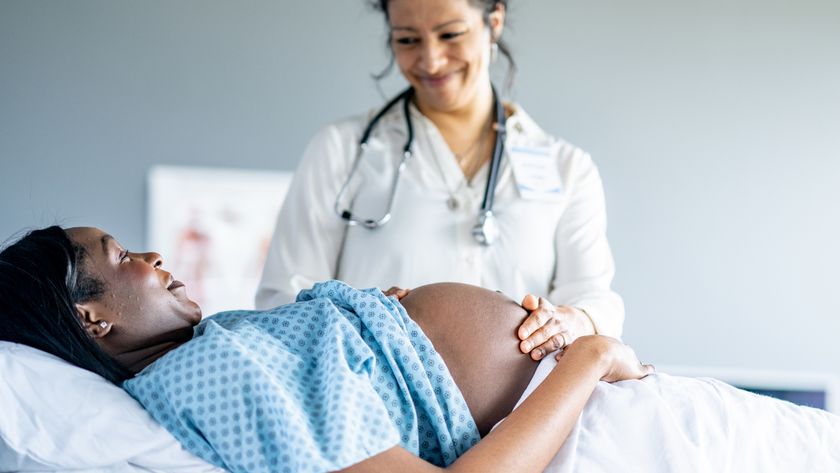Some Common Antibiotics May Slightly Increase Risk of Miscarriage

Women who take certain types of antibiotics during early pregnancy may be at an increased risk of miscarriage, a new study suggests.
But not all antibiotics are alike, and some antibiotics may be safer during pregnancy than others. Researchers in Canada found that mothers-to-be who used certain classes of antibiotics had a small increase in risk of miscarriage before the 20th week of pregnancy compared with pregnant women who did not take any antibiotics, according to the study published today (May 1) in the Canadian Medical Association Journal.
"The study found that the most frequently used antibiotics — penicillin, cephalosporin and erythromycin — are not associated with an increased risk of miscarriage," said lead study author Anick Bérard, a pharmacy professor at the University of Montreal in Canada. [6 Myths About Miscarriage]
Women who develop infections during pregnancy need to be treated, and it is reassuring to see that some of the antibiotics that are most widely used were not linked with an increased risk of miscarriage, Bérard told Live Science.
Despite the frequent use of antibiotics during pregnancy to treat a variety of infections, the safety of exposing the fetus to these medications remains a concern, the study authors wrote. This is because previous studies on the link between antibiotic use during pregnancy and the risk of miscarriage have had conflicting results — some studies have found a connection between the use of certain classes of antibiotics during pregnancy and miscarriage, while others have not shown any link.
Small risk
In the new study, the researchers reviewed data collected from the Quebec Pregnancy Cohort between 1998 and 2009. This database contains information on the pregnancies within the province that are covered by the Quebec government's drug insurance plan; it includes the vast majority of pregnancies in the province.
As a result, the researchers felt confident that the study used accurate information on the prescriptions filled for antibiotics, and did not have to depend on the women's memory to recall their medication use, a less-reliable measure, according to the study.
Sign up for the Live Science daily newsletter now
Get the world’s most fascinating discoveries delivered straight to your inbox.
The researchers compared the cases of the more than 8,700 women who had suffered a miscarriage during their first 20 weeks of pregnancy to about 87,000 women who did not. Among these women, who ranged in age from 15 to 45, about 12,500 had taken an antibiotic during pregnancy. [7 Ways Pregnant Women Affect Babies]
The study found that five broad classes of antibiotics — macrolides, quinolones, tetracyclines, sulfonamides and metronidazole — were linked with an increased risk of miscarriage during early pregnancy. They noted that one macrolide, erythromycin, was not linked with an increased risk of miscarriage.
These findings are consistent with the results seen in some previous studies, but the association between the use of quinolones and tetracyclines and miscarriage are new findings, Bérard said. However, current guidelines in obstetrics do not recommend the use of quinolones and tetracyclines during early pregnancy, and these results provide evidence to support this advice, she said.
Although the study showed an increased risk of miscarriage in women who took some types of antibiotics, the risk itself is considered small, Bérard told Live Science. The use of many other medications, such as nonsteroidal anti-inflammatory drugs and antidepressants, have also been associated with a similar increased risk of miscarriage, she noted.
Another piece of good news was that the study found that one antibiotic, nitrofurantoin, which is mostly used to treat urinary tract infections, was actually linked to a decreased risk of miscarriage, compared with the control group. This study is the first to suggest this association, so future studies need to replicate this new finding, Bérard said.
Originally published on Live Science.
Cari Nierenberg has been writing about health and wellness topics for online news outlets and print publications for more than two decades. Her work has been published by Live Science, The Washington Post, WebMD, Scientific American, among others. She has a Bachelor of Science degree in nutrition from Cornell University and a Master of Science degree in Nutrition and Communication from Boston University.

'Love hormone' oxytocin can pause pregnancy, animal study finds

'Mini placentas' in a dish reveal key gene for pregnancy











